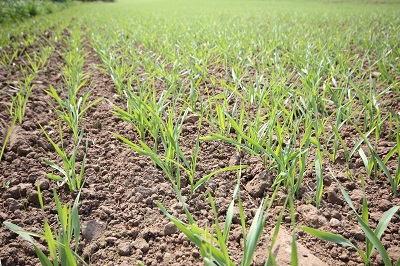Winter crop monitoring
20 February 2020Winter barley
Disease levels are low at the moment and crops are generally looking well. Where disease does establish early then a T∅ spray at mid-tillering is an option to allow better control at T1 and a bit more flexibility in case of poor weather at T1. The T∅ is a good time to use alternative chemistry to those used later in the season. This keeps the chemistry you would tend to select for the main sprays fresh, but also helps more generically to reduce the risk of resistance build-up. Barley pathogens have built up a large number of fungicide resistance issues and while mixed applications and varied fungicide programmes still give good control commercially, many individual components have slipped a bit in efficacy.
Winter wheat
Many winter wheat crops have had no weed control. It is still possible to apply a residual for annual meadow-grass and some broad-leaved weeds. For instance, Liberator can be used up to the end of March at the 0.3 l/ha dose rate, provided the growth stage of the winter wheat is not beyond GS22. At this dose, it controls very small annual meadow-grass up to 2 leaves.
Winter oilseed rape
Competitive weeds such as cleavers and scentless mayweed will warrant control. The application window is tight for some chemicals with the application period running from 1st March up until just before flower buds become visible in the crop. The application should be made to dry leaves and a period of 6 hours rain-free should follow application. Scentless mayweed can be clearly visible if not controlled – its daisy-like flowers showing above the crop – the flowers can be a nuisance at harvest as can those of thistles.
Many oilseed rape crops certainly do not require a check to their growth. However, there may be a few early sown crops at risk of developing an over-large canopy and being prone to lodging. For these crops, there is a choice of two growth regulator products that can be applied to limit the growth in early spring – please seek further guidance from your agricultural adviser or agronomist. These products must be used in actively growing crops.
Sign up to the FAS newsletter
Receive updates on news, events and publications from Scotland’s Farm Advisory Service

